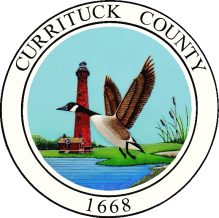What is 9-1-1?
9-1-1 is a 3 digit telephone number that you can use 24 hours a day for law enforcement, fire, or emergency medical services.
9-1-1 consists of a team of professional men and women who are trained in getting emergency help to you.
What to Expect when you Dial 911
A 9-1-1 operator, or telecommunicator, will answer your call and identify the agency you have reached. They will ask you several questions that will assist them in dispatching the appropriate servicing agency to help you.
DO NOT HANG UP!
REMEMBER TO REMAIN CALM AND CLEARLY
ANSWER ALL OF THE QUESTIONS YOU ARE ASKED.
When dialing 9-1-1, the phone number and address you are calling from is automatically displayed on an ANI/ALI screen for the call-taker. This information must ALWAYS be confirmed.
The telecommunicator will ask you several questions in order to get the necessary information about the emergency to assist you. Sometimes they may have you stay on the line until help arrives to give instructions.
In rural areas it is common to be asked for a description of your home and cars in your driveway. The telecommunicator may also ask you to provide the name of a nearby cross street or landmark to aid in expediting a response.
When you call 9-1-1, the telecommunicator will need to know the answers to several questions:
Who?
- Who are you
- Who is in need
- Who is affected by the event
What?
- What has or is happening?
- Is it a fire?
- A crime?
- A health emergency?
Where?
- Where is the event happening (an exact address is best, if known)?
- If you’re on the beach, can you provide the closest mile marker?
- If you don’t know exactly where you are, can you provide the name of an intersection or popular landmark?
When?
- When did the event begin
- When did you notice it
How?
- Do you know how the event happened?
Let the telecommunicator know if you have seen any weapons or believe that weapons may be present.
When to Call 911
- When law enforcement, fire, and medical response is needed
- When you see fire or smoke
- When life and or property are in danger
- When a crime is being committed
- When an ambulance is necessary
- Anytime you wish to obtain an expedient response from law enforcement, fire, or rescue (examples: medical emergencies, domestic disputes, assaults, breaking and entering, animal bites, fights, structure fires, vehicle fires, and any life or property threatening situation)
- If you are in doubt as to whether a situation is an emergency, call 9-1-1. It’s better to be safe and let the call taker determine if you need emergency assistance.
When Not to Call 911
- Checking on power, phone, or cable outages
- Inquiring about road conditions
- Asking for weather conditions
- Paying for citations
- Asking for the correct time
- Inquiring about fireworks displays, the start of hunting season, or other events
- Checking on the status of school closings
- Asking for directions
- Asking for telephone numbers (dial 4-1-1, unless life or property is threatened)
- Seeking advice on legal matters
- Seeking hurricane evacuation information
- Reporting barking dogs, cats in trees, or stray animals (non-threatening animal complaints)
- Reporting you are locked out of home or vehicle (unless a child is in vehicle)
Remember, calling 9-1-1 for a non-emergency may threaten the life of someone else. The non-emergency number for the Communications Department is 252-453-3633. This number is manned 24 hours a day.
Helpful 9-1-1 Hints
- Many people mistakenly call 9-1-1 thinking the dispatcher can transfer them to a non-emergency number. Because the 9-1-1 phone trunks are different from normal phone lines, this is impossible.
- If you accidentally call 9-1-1: STAY ON THE LINE, DO NOT HANG UP! Let the dispatcher know what happened. Otherwise, the Communications Department has no way of knowing if you dialed a wrong number or if there is actually an emergency.
- Another common problem involves callers who hang up before the call goes through, just to call back again. Most people do not know that when you dial 9-1-1 your call goes to a master computer in Rocky Mount that retrieves your name, address, and phone number from its database and then sends the call to the proper PSAP (Public Safety Answering Point). This can take several seconds.
- Please post your physical address at your home and/or business. Make sure it is visible from the road to aid emergency responders.
- Teach your children to call 9-1-1 for law enforcement, fire, or medical help.
- DO NOT make prank calls to 9-1-1. Prank calls can prevent fire, law enforcement and Emergency medical personnel from responding to an actual crisis. Anyone who misuses the 911 system in Currituck, North Carolina will be prosecuted under G.S. 14-111.4 Page 1 § 14-111.4.
G.S. 14-111.4 Page 1 § 14-111.4. – Misuse of 911 system. It is unlawful for an individual who is not seeking public safety assistance, is not providing 911 service, or is not responding to a 911 call to access or attempt to access the 911 system for a purpose other than an emergency communication. A person who knowingly violates this section commits a Class 1 misdemeanor. (2007-383, s. 1(b); 2013-286, s. 1.)
- Listen to local radio and television stations for weather conditions and information regarding school closings. Do not call 9-1-1 concerning power, cable, or phone outages. Such calls tie up 9-1-1 lines for those who need emergency help. Call the phone, cable, and utilities companies to report these types of problems.

